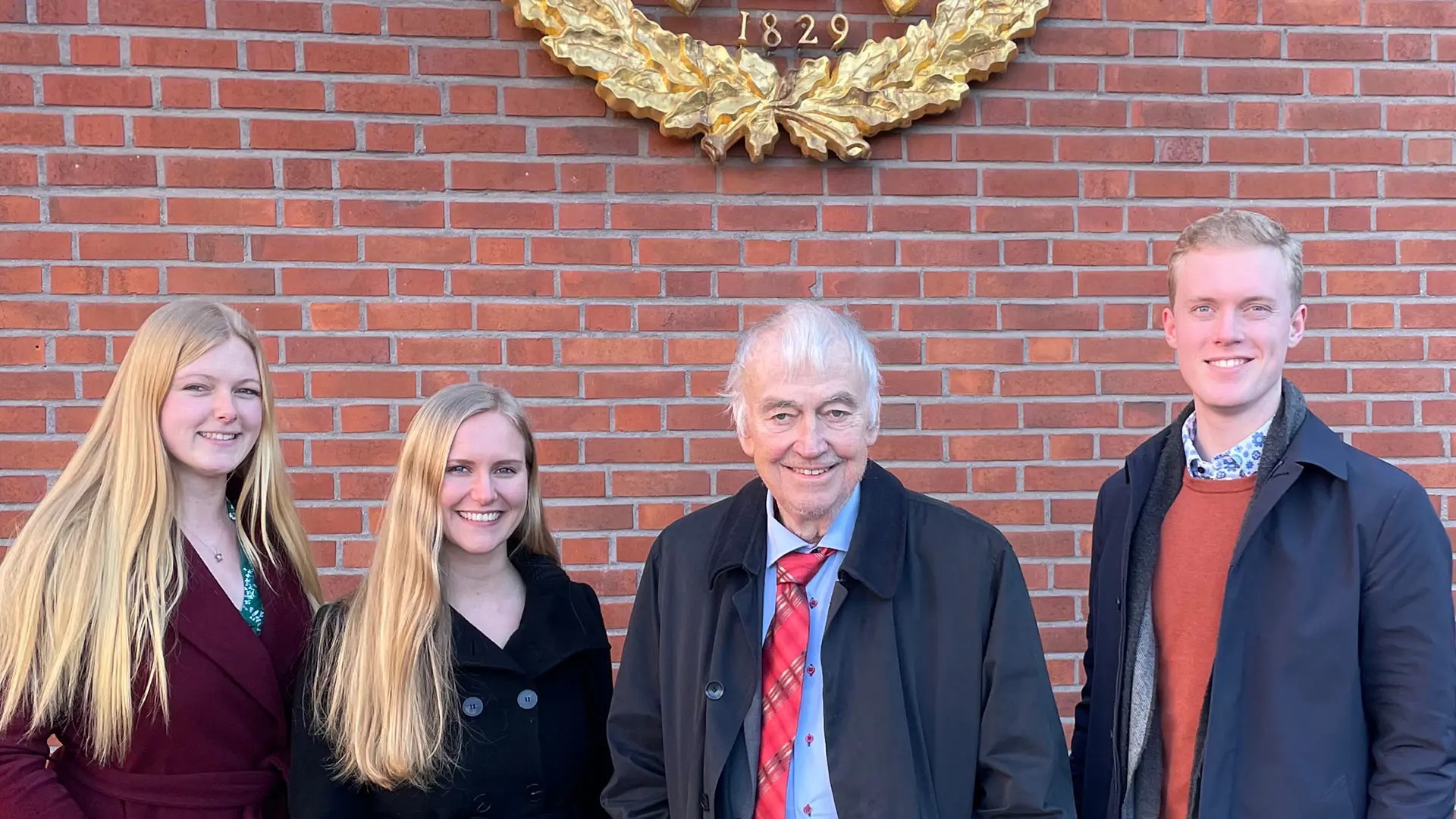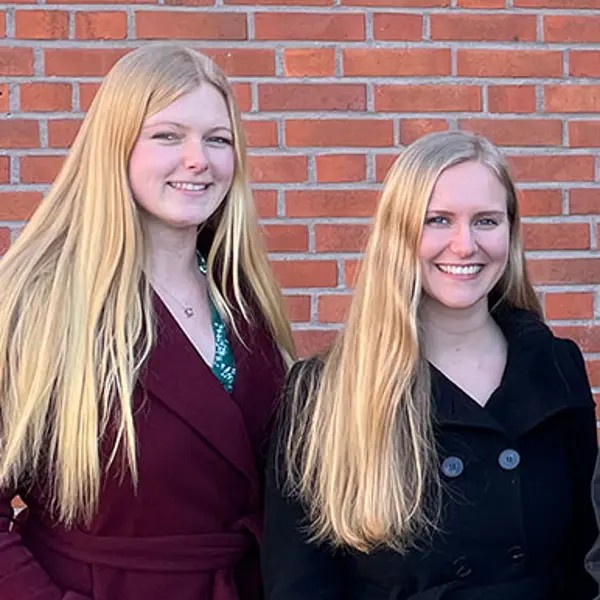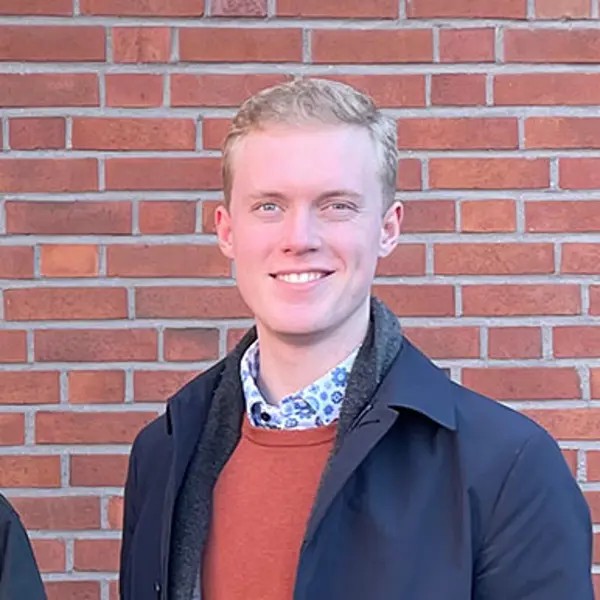
Chalmers students Ida Ekmark, Esmée Berger and Nils Grimbeck are awarded the Bert-Inge Hogsved Prize for best entrepreneurship, by the Forum for Technical Physicists at Chalmers. Common to all three award winners is that they with great commitment and drive have transformed their ideas into something that will be useful to others – now and in the future. The purpose of the award is to draw attention to entrepreneurial initiatives among Chalmers students.
Bert-Inge Hogsved's prize for best entrepreneurship was established in 2011 by Bert-Inge Hogsved, himself a technical physicist, and the prize is awarded every year to students in engineering physics, engineering mathematics or chemical engineering with physics at Chalmers.
This year, the award committee for Bert-Inge Hogsved's award has decided to reward two different projects, Ida Ekmark's and Esmée Berger's project STREAM and Nils Grimbeck's project Matte EX.
In the interviews below, the recipients tell more about their projects!
Unique simulation tool developed by students at Chalmers
Ida Ekmark and Esmée Berger, have developed a modelling tool that makes it possible to study how fusion reactors can be started in a safe way. The tool is freely available as open source and has attracted great international interest.
According to the international organisation Sustainable Energy for All, 760 million people currently still lack access to electricity. This is something that will be addressed within the context of Agenda 2030 and the global Sustainable Development Goals. In addition to renewable energy, many see fusion power as the energy source of the future. Globally, there is significant interest into ongoing research and development in the field of fusion power.

Effect of runaway electrons included
“I’ve been interested in working with environmental issues ever since I was in high school, and it has been a major driving force for me. Although we have a long way to go before we can use fusion power in our electrical grid, I’m motivated to be involved in finding solutions to these challenges,” says Ida Ekmark, who is currently working on her Master’s thesis in Physics at Chalmers.
Within the framework of a project course in physics at Chalmers, Ida Ekmark and Esmée Berger have developed a modelling tool, called STREAM (STartup Runaway Electron Analysis Model), to simulate how fusion reactors can be started up in a safe way. Starting up and shutting down a reactor in a controlled manner is a balancing act in which careful modelling, simulation and control are essential to keep the system’s energy in check. In the worst case scenario, runaway electrons can damage the reactor.
When Ida and Esmée developed STREAM, they included the effect of runaway electrons in their code. This is something unique, because no previous simulation programmes for the start-up of fusion reactors included this factor. Their work has attracted great international interest. STREAM is now used in fusion experiments at the Swiss Federal Institute of Technology Lausanne (EPFL), and both the UK Atomic Energy Authority (UKAEA) as well as the Massachusetts Institute of Technology (MIT) in the USA have plans to utilise it.
Open source an obvious choice
“It was an obvious choice for us to use open source and make the tool freely available. By sharing our work, we’re contributing to the advancement of research in the field of fusion energy,” says Esmée Berger, who is currently pursuing a PhD at the Department of Physics at Chalmers.
Ida Ekmark and Esmée Berger have demonstrated impressive entrepreneurship by rapidly transforming an idea into a finished tool that has attracted international interest and use. For their efforts, they are being honoured with this year’s Bert-Inge Hogsved Award for Best Entrepreneurship.
Read more about the research behind the project in the scientific article Runaway electron generation during tokamak start-up, which has been published in Cambridge University Press.
Chalmers student is rewarded for unique math project
Chalmers student Nils Grimbeck has spent the last five years developing Matte EX, a project which, through his persistent and successful efforts, is aimed at all secondary school students in Partille with an outstanding aptitude for mathematics. Matte EX gives students the opportunity to work with more difficult problems that not only challenge them but also deepen their interest in mathematics as a subject.
According to the Swedish National Agency for Education, five percent of school students are considered particularly gifted. These students often need different challenges than their school peers. It can be difficult to recognise that a student is particularly gifted as he/she may be underachieving in order to fit in with the rest of the class or may have lost the desire to learn.

Nils Grimbeck is a second-year Technical Mathematics student at Chalmers. For the past five years, Nils has worked on the development of Matte EX, a project aimed at secondary school students in Partille with an outstanding aptitude for mathematics.
Extra challenge for those who need it
"I found mathematics fairly easy throughout my own secondary school years and I was often working on my own with higher grade maths books whilst missing the chance of doing maths together with my schoolmates. Matte EX complements the regular teaching of mathematics in that students needing an extra challenge can count and solve problems together whilst being given adequate challenges for their own continued development" explains Nils Grimbeck.
Every week, the students stay an extra hour at school, solving problems together with their appointed maths mentor with previous involvement in the project.
"This gives the students an opportunity to discover mathematics together with their maths mentor. They become good problem solvers and gain a deeper understanding of how formulas and theorems work as they themselves have had to find the solution as part of a mathematical task. Even if they will not work with mathematics in the future, the students will always benefit from the methodology used to solve difficult problems. Hopefully, we will also have sparked an interest in mathematics by showing how fun and useful it is" says Nils Grimbeck.
Mentors hired by the municipality
In 2018, Nils Grimbeck and his former teacher Tuula Maunula started Matte EX as a pilot project at a school in Partille. The school paid them a fee but Nils managed to expand the project, leading to Partille municipality taking full responsibility for the appointment and remuneration of the mentors. What started with one class in one school five years ago has since developed to include, in 2020, all five secondary schools in Partille and a total of six student groups of about ten students each.
"I have not been able to find a similar project during these years and I hope that Matte EX will remain in Partille in the future and perhaps in other municipalities too. My ambition has been to build something that remains for a long time and continues to develop even when I am no longer involved" says Nils.
Nils Grimbeck receives this year's Bert-Inge Hogsved Award for Best Entrepreneurship for his work with mathematics teaching in Partille.